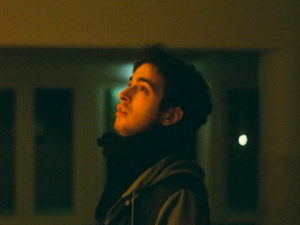Driving and Ego: What Your Driving Says About Your Character
- Emre Boz
- August 10, 2021
- Lifestyle

You just wake up and look at the time. You’re late to work! You get up, get changed, pack your stuff and head off into the car. Constantly looking at your watch you realize you are super late and that the boss will not let you off for this. The urge to rush and just get to work as quickly as you can kicks in. There’s a stream of cars waiting at the lights. The car in front is a bit strange; he’s going slower than the rest. As the light turns green everyone continues at the same speed except for this one car. The lights then turn yellow and then red with the car in front stopping at the lights, but if he’d just gone at the same speed as everyone else you would have made it. In the heat of the moment you decide to beep in frustration!
BEEEEP BEEEEPP!
“What the heck is wrong with him? I’m going to be more late because of him! UGHHH!”
You sigh, tapping your wheel in anger. As the light turns green once again you decide to see who’s really behind the wheel. Maybe they were on their phone, who could this time waster be? Their face and body becomes clearer as they turn their car. You notice it is a really elderly man, hunched over struggling intensely to watch where he is going. This hits you hard, you sink back into your seat with a feeling of regret and guilt.
Let’s take this story and reap some lessons from this.
Raising our Consciousness
Often (and myself included) the action of setting out for one’s destination becomes a second nature activity. We unconsciously switch on autopilot mode and proceed to go to wherever we are going. When driving, this becomes a journey solely focused on getting to our destination. One of the consequences of this is our inability to bring our mind present to the road. We lose sight of what’s around us and ignore other things, people and our environment – developing a sort of tunnel vision perspective. As with the above example, the person was so set on just getting to work that these little hiccups strung a cord inside and he got completely annoyed. Why? Because only what he wanted mattered to him; the only goal was getting to work ASAP. Even if we don’t have an appointment or timeframe to get somewhere, we subconsciously resort to shutting the world outside of us and it becomes easy to view matters only from our perspective.
Such a mechanism is not always a bad thing though. German sociologist Georg Simmel was one of the first to describe this ‘psychological indifference’ as the ‘blasé’ attitude of the city-dweller 1https://citymonitor.ai/community/metropolis-and-mind-are-big-cities-affecting-our-mental-health-1532 . He said that we switch-off in order to cope with the seemingly endless noise and stimulation of city life. So, in order to remain sane we need to shut off our environment especially when such an activity becomes routine. My problem however, with habitually exercising this is that we weaken certain traits that will make us stronger and more resilient Muslims. Some of the key traits that we can develop in our driving include patience and presence and these help prevent what the ego (nafs) demands (which is to seek gratification now and induce a type of unawareness within our surroundings.
“The nafs is like a wild horse, and you are riding upon him. If you move your attention for one second , he will throw you off."
If we are able to take the reigns of our base desires and inclinations, we can tame the wild beast within. Instead of it controlling us, we steer and guide it, we dictate its actions towards a path of success to God. But within the process of taming the horse, we must understand its movements and have qualities of patience and skill when dealing with it.
Patience with Presence
As with any journey, driving is not merely the action of getting from A to B. Along the way there are many twists and turns, many unexpected events and ultimately as human beings we are far from predictable; so interactions with other people will always be unforeseeable. It is inevitable that we will come across things we don’t expect, people cutting us off on the road or a random lane switching without indication. If during these moments of unexpectedness or discomfort we are able to exercise patience rather than anger or compassion rather than hostility we are able to move one step closer to constraining our nafs. The end result of this is a nafs with less ego and need to fulfill only its wants, and decisions and choices that allow one to get closer to Allah.
The journey of taming the wild horse which is our nafs requires patience as the journey is a long road with many bumps and potholes. Inevitably on this journey we will fall, fail, make bad decisions and sometimes be impatient and get angry. Despite this, some tricks that Sheikh Faraz Rabbani uses within the journey of ridding oneself of qualities that are not conducive to the heart is the CSR method 2 What Muslims Believe and Why: Dardir’s Kharida al-Bahiyya lesson 12, 26th minute. https://academy.seekersguidance.org/course/view.php?id=113.
- A Commitment to get rid of this trait (and this is a lifelong effort as there will be times of relapse, though what is important is a resolve to want to get rid of it).
- Striving to work on it.
- Rectification and repentance if you fall/ make the same mistake.
We don’t expect an overnight change. Everything transformatively good in life needs to be introduced slowly so that we can build good habits.
Some Recommendations 3For myself first and foremost
Turn to God: Ask Allah to keep you patient during times of trial
Reflection: Next time you make a rash decision on the road, reflect on your choice and ask yourself is this a decision out of haste, why do you want to rush? What could I have done better? This sort of taking yourself to account is the first crucial step in the journey to taming the nafs because it allows you to move forward with wisdom and learn from your experiences.
Daily Duas: Entering the car and exiting with dua, the most basic of which is the simple Bismillah (In the name of Allah), thus placing barakah in your actions 4The full dua for riding a vehicle or animal: https://www.islamawareness.net/Dua/Fortress/095.html
Breathing: Just breathing whenever you feel the urge to drive fast to overtake someone or when you have that feeling in your chest rising to your head (the pre-feeling of anger). Take a couple of controlled breaths, breathing deeply in and out. This allows your senses to focus on the present moment and make clearer decisions.
Dhikr (remembrance): Whenever you feel angry, agitated or impatient, let your tongue become moist with the remembrance of Allah. Recite Allah’s name over and over again, say La illaha Illallah, send salutations upon the Prophet ﷺ. This like the breathing above allows your body to cool down fighting the heat of your anger and clears your mind and heart. You can use this method in almost any situation. If you’re on the train and you are frustrated by the noise around you, close your eyes and make silent dhikr, if you’re waiting in line and it’s taking forever, make dhikr. Maybe even set a goal for yourself, I’m going to say la ilaha illallah maybe 100 times before I get off the train.
Let go: Whenever you get the urge to be hasty or get to your destination quickly, first notice this urge, then remember that despite the urge that it’s ok, try letting this need for haste go. This means that you need to reassure your mind that whatever the task is (and no matter how late you are), getting there in a safe and sound manner comes first before anything else.If you are late, reflect on how next time you could prepare earlier or if it is out of your control (e.g. due to really heavy traffic) take that moment to step back mentally and maybe do something to settle the mind like dhikr, deep breathing or simply looking outside.
As a parting reminder, remove the idea of only thinking about your rights. This means when somebody doesn’t stop for you at a roundabout, or when their backing out of their driveway and it was your way, rather than beeping, don’t let their inconsiderateness affect you; it’s not worth it.
“Nobody swallows a more bitter pill than that of anger—seeking the satisfaction of Allah.”
The Messenger of Allah ﷺ said, ''The strong person is not he who has physical strength but the person is strong if he can control his anger.”
Disclaimer: The views, opinions and conclusions presented in these pieces are strictly those of the authors. MYA does not necessarily endorse the personal views of the authors.

Emre Boz
Emre Boz graduated from UNSW with a B Economics/ B Arts (International Relations/Asian Studies). His interests include history (particularly Asian and Turkish/Ottoman), tasawwuf and learning languages such as Chinese and Arabic. He recently moved to Istanbul, Turkey and works as a journalist for TRT World.
Similar Posts You May Also Like

Tips to Build a Relationship with the Quran

Ignite

Top 10 Greatest Muslim Sport Stars of All Time
Like what you’re reading?
Subscribe to Muslim In Print and be the first to know when we post.





